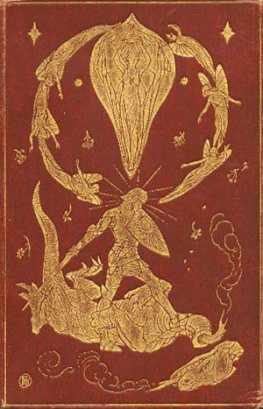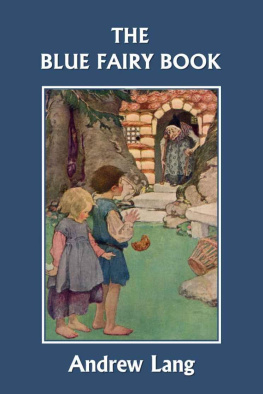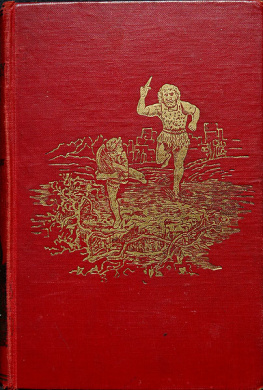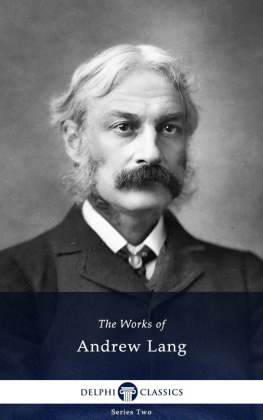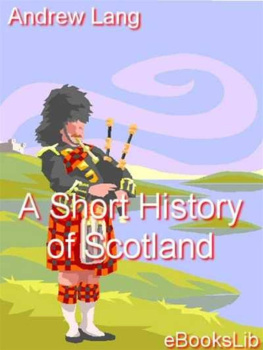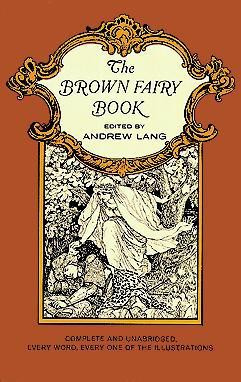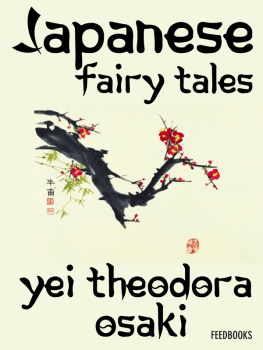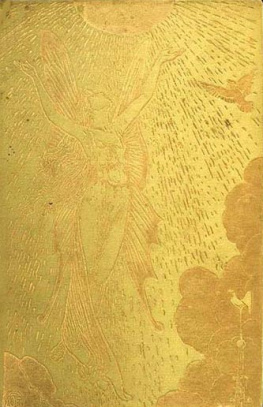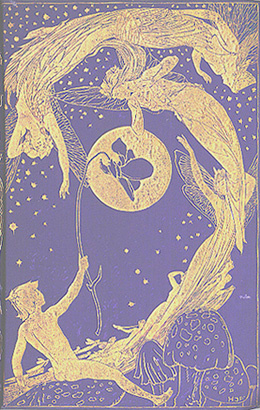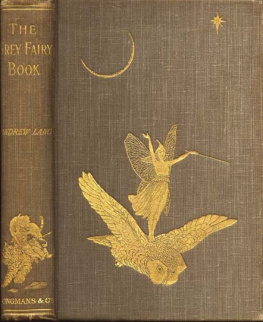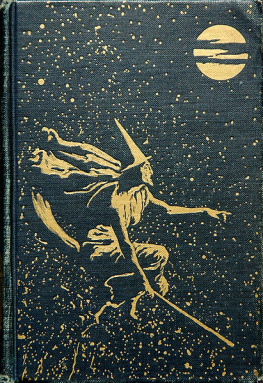Andrew Lang - The Crimson Fairy Book
Here you can read online Andrew Lang - The Crimson Fairy Book full text of the book (entire story) in english for free. Download pdf and epub, get meaning, cover and reviews about this ebook. year: 1903, publisher: Feedbooks, genre: Art. Description of the work, (preface) as well as reviews are available. Best literature library LitArk.com created for fans of good reading and offers a wide selection of genres:
Romance novel
Science fiction
Adventure
Detective
Science
History
Home and family
Prose
Art
Politics
Computer
Non-fiction
Religion
Business
Children
Humor
Choose a favorite category and find really read worthwhile books. Enjoy immersion in the world of imagination, feel the emotions of the characters or learn something new for yourself, make an fascinating discovery.
- Book:The Crimson Fairy Book
- Author:
- Publisher:Feedbooks
- Genre:
- Year:1903
- Rating:3 / 5
- Favourites:Add to favourites
- Your mark:
- 60
- 1
- 2
- 3
- 4
- 5
The Crimson Fairy Book: summary, description and annotation
We offer to read an annotation, description, summary or preface (depends on what the author of the book "The Crimson Fairy Book" wrote himself). If you haven't found the necessary information about the book — write in the comments, we will try to find it.
The Crimson Fairy Book — read online for free the complete book (whole text) full work
Below is the text of the book, divided by pages. System saving the place of the last page read, allows you to conveniently read the book "The Crimson Fairy Book" online for free, without having to search again every time where you left off. Put a bookmark, and you can go to the page where you finished reading at any time.
Font size:
Interval:
Bookmark:


Published: 1903
Categorie(s): Fiction, Fantasy, Fairy Tales, Folk Tales& Mythology, Short Stories, Juvenile & Young Adult
Source: http://www.gutenberg.org/etext/2435
Andrew Lang (March 31, 1844, Selkirk July 20, 1912, Banchory,Kincardineshire) was a prolific Scots man of letters. He was apoet, novelist, and literary critic, and contributor toanthropology. He now is best known as the collector of folk andfairy tales. The Andrew Lang lectures at St Andrews University arenamed for him. Source: Wikipedia
- TheArabian Nights (1898)
- TheBlue Fairy Book (1889)
- TheRed Fairy Book (1890)
- TheViolet Fairy Book (1901)
- TheGrey Fairy Book (1900)
- TheYellow Fairy Book (1894)
- Helen ofTroy (1882)
- TheOrange Fairy Book (1906)
http://www.feedbooks.com
Strictly for personal use, do not use this file for commercialpurposes.
Each Fairy Book demands a preface from the Editor, and theseintroductions are inevitably both monotonous and unavailing. Asense of literary honesty compels the Editor to keep repeating thathe is the Editor, and not the author of the Fairy Tales, just as adistinguished man of science is only the Editor, not the Author ofNature. Like nature, popular tales are too vast to be the creationof a single modern mind. The Editor's business is to hunt forcollections of these stories told by peasant or savage grandmothersin many climes, from New Caledonia to Zululand; from the frozensnows of the Polar regions to Greece, or Spain, or Italy, or farLochaber. When the tales are found they are adapted to the needs ofBritish children by various hands, the Editor doing little beyondguarding the interests of propriety, and toning down to mildreproofs the tortures inflicted on wicked stepmothers, and othernaughty characters.
These explanations have frequently been offered already; but, asfar as ladies and children are concerned, to no purpose. They stillask the Editor how he can invent so many storiesmore thanShakespeare, Dumas, and Charles Dickens could have invented in acentury. And the Editor still avers, in Prefaces, that he did notinvent one of the stories; that nobody knows, as a rule, whoinvented them, or where, or when. It is only plain that, perhaps ahundred thousand years ago, some savage grandmother told a tale toa savage granddaughter; that the granddaughter told it in her turn;that various tellers made changes to suit their taste, adding oromitting features and incidents; that, as the world grew civilised,other alterations were made, and that, at last, Homer composed the'Odyssey,' and somebody else composed the Story of Jason and theFleece of Gold, and the enchantress Medea, out of a set ofwandering popular tales, which are still told among Samoyeds andSamoans, Hindoos and Japanese.
All this has been known to the wise and learned for centuries,and especially since the brothers Grimm wrote in the early years ofthe Nineteenth Century. But children remain unaware of the facts,and so do their dear mothers; whence the Editor infers that they donot read his prefaces, and are not members of the Folk LoreSociety, or students of Herr Kohler and M. Cosquin, and M. HenriGuidoz and Professor Child, and Mr. Max Muller. Though theseexplanations are not attended to by the Editor's customers, hemakes them once more, for the relief of his conscience. Many talesin this book are translated, or adapted, from those told by mothersand nurses in Hungary; others are familiar to Russian nurseries;the Servians are responsible for some; a rather peculiarly fancifulset of stories are adapted from the Roumanians; others are from theBaltic shores; others from sunny Sicily; a few are from Finland,and Iceland, and Japan, and Tunis, and Portugal. No doubt manychildren will like to look out these places on the map, and studytheir mountains, rivers, soil, products, and fiscal policies, inthe geography books. The peoples who tell the stories differ incolour; language, religion, and almost everything else; but theyall love a nursery tale. The stories have mainly been adapted ortranslated by Mrs. Lang, a few by Miss Lang and Miss Blackley.
There was once a king's son who told his father that he wishedto marry.
'No, no!' said the king; 'you must not be in such a hurry. Waittill you have done some great deed. My father did not let me marrytill I had won the golden sword you see me wear.'
The prince was much disappointed, but he never dreamed ofdisobeying his father, and he began to think with all his mightwhat he could do. It was no use staying at home, so one day hewandered out into the world to try his luck, and as he walked alonghe came to a little hut in which he found an old woman crouchingover the fire.
'Good evening, mother. I see you have lived long in this world;do you know anything about the three bulrushes?'
'Yes, indeed, I've lived long and been much about in the world,but I have never seen or heard anything of what you ask. Still, ifyou will wait till to-morrow I may be able to tell yousomething.'
Well, he waited till the morning, and quite early the old womanappeared and took out a little pipe and blew in it, and in a momentall the crows in the world were flying about her. Not one wasmissing. Then she asked if they knew anything about the threebulrushes, but not one of them did.
The prince went on his way, and a little further on he foundanother hut in which lived an old man. On being questioned the oldman said he knew nothing, but begged the prince to stay overnight,and the next morning the old man called all the ravens together,but they too had nothing to tell.
The prince bade him farewell and set out. He wandered so farthat he crossed seven kingdoms, and at last, one evening, he cameto a little house in which was an old woman.
'Good evening, dear mother,' said he politely.
'Good evening to you, my dear son,' answered the old woman. 'Itis lucky for you that you spoke to me or you would have met with ahorrible death. But may I ask where are you going?'
'I am seeking the three bulrushes. Do you know anything aboutthem?'
'I don't know anything myself, but wait till to-morrow. PerhapsI can tell you then.' So the next morning she blew on her pipe, andlo! and behold every magpie in the world flew up. That is to say,all the magpies except one who had broken a leg and a wing. The oldwoman sent after it at once, and when she questioned the magpiesthe crippled one was the only one who knew where the threebulrushes were.
Then the prince started off with the lame magpie. They went onand on till they reached a great stone wall, many, many feethigh.
'Now, prince,' said the magpie, 'the three bulrushes are behindthat wall.'
The prince wasted no time. He set his horse at the wall andleaped over it. Then he looked about for the three bulrushes,pulled them up and set off with them on his way home. As he rodealong one of the bulrushes happened to knock against something. Itsplit open and, only think! out sprang a lovely girl, who said: 'Myheart's love, you are mine and I am yours; do give me a glass ofwater.'
But how could the prince give it her when there was no water athand? So the lovely maiden flew away. He split the second bulrushas an experiment and just the same thing happened.
Font size:
Interval:
Bookmark:
Similar books «The Crimson Fairy Book»
Look at similar books to The Crimson Fairy Book. We have selected literature similar in name and meaning in the hope of providing readers with more options to find new, interesting, not yet read works.
Discussion, reviews of the book The Crimson Fairy Book and just readers' own opinions. Leave your comments, write what you think about the work, its meaning or the main characters. Specify what exactly you liked and what you didn't like, and why you think so.

